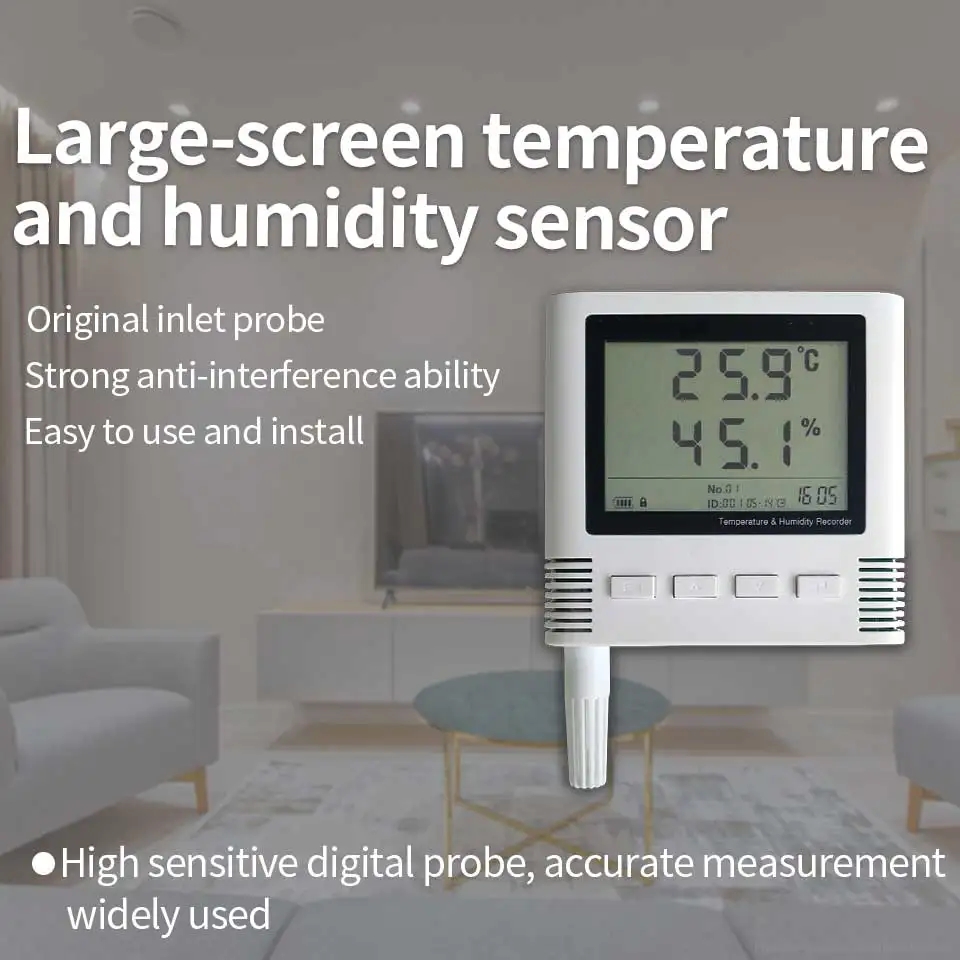
The library is reopened, and environmental monitoring must be followed up in time
Prevent excessive accumulation of water from damaging the books and ensure the safety of the books.

Prevent excessive accumulation of water from damaging the books and ensure the safety of the books.
With the stable control of the epidemic, people's production and life have gradually returned to normal, and libraries in various places have been opened one after another to meet the spiritual and cultural needs of the general public. As a place for the preservation and distribution of materials, books and other items, as well as a public place for people to read and relax daily, the maintenance of its environment is very important, which directly affects the preservation of books and people's reading experience. Strengthening the monitoring of the library's environment will help protect the books in the library and at the same time provide citizens with a comfortable reading environment.
The library has extremely strict requirements on the environment, especially its indoor temperature and humidity. The change in temperature and humidity in the library is the main reason for the deterioration of books and publications. Appropriate temperature and humidity can effectively prevent the growth and reproduction of mold rot in archives and ensure the long-term preservation of archives; high temperature and high humidity will make the paper hydrolyze and accelerate the aging speed, make molds and bacteria multiply rapidly, and cause aging and damage to the books. Condition. Using temperature and humidity sensors to monitor the temperature and humidity conditions in the library in real time can help librarians to accurately understand the temperature and humidity conditions in the library in real time. Once the temperature and humidity parameters are lower or higher than the normal range, an alarm can be issued in time to notify the management staff in time Take measures to ensure that the temperature and humidity in the library are kept within an appropriate range, and create a good book storage and reading environment.
The various books, periodicals and other documents collected in the library are mostly combustible materials. Once a fire occurs, the books will not only turn to ashes, but also the lives of staff and readers will be endangered. Therefore, the smoke sensor has become one of the indispensable monitoring equipment in the library. The smoke alarm can monitor the library in real time for 24 hours. Once smoke is generated in the library, the smoke sensor can react in the first time, trigger the alarm system, remind the staff to deal with it quickly, and ensure that the staff can be in the initial stage of the fire. Receive information at the stage and extinguish the fire in time to achieve efficient and reliable fire prevention and treatment.
Strengthen body temperature detection in public places
Although the domestic epidemic is under stable control, in order to ensure that it is foolproof, many public places still need to take protective measures and strengthen body temperature measurement and elimination. Due to the high population density and frequent exchanges in public places, manual monitoring is time-consuming, laborious and time-consuming. Use the temperature measurement security door to measure body temperature, automatically detect the body temperature of passing people, and provide equipment warnings to people whose body temperature exceeds the warning temperature threshold and suspected fever symptoms to ensure the health of the personnel entering the museum; simplify the temperature measurement process and improve the efficiency of temperature measurement. save time and energy.
Accompanied by people coming and going, there are sometimes noisy sounds and uncivilized behaviors in the library. A noisy environment will affect people's reading experience. The library is a special public place, and a quiet environment is the most basic condition and requirement for library readers. Avoiding noise pollution in the library and providing readers with a quiet and comfortable learning environment are the basic qualities of a library. By installing a noise sensor, it can monitor the noise situation in the library. Once the noise exceeds the set value, it affects people's learning and reading, it can notify the management staff in time, stop the noise generation through measures such as behavior suppression, and keep the library quiet. It is convenient for people to read and study quietly.
For people who like to read, the lighting environment of the library is extremely important. Bright light is more convenient for reading and less likely to cause eye fatigue; on the contrary, too dark light is not only unfavorable for reading, it will also cause eye fatigue after a long time. But also pay attention to the illumination is not too strong, otherwise it will hurt the eyes. In order to ensure that people live under suitable light, China has formulated sanitary standards for indoor illuminance, which stipulates that the sanitary standards for countertop illuminance in libraries, museums, art galleries, and exhibition halls are ≥100Lx. Install an illuminance sensor in the library to detect the illuminance in the library. When the illuminance is too strong or insufficient, the system can link the corresponding lighting facilities to shading or fill the light to ensure the suitability of the reading light.
Prevent water leakage and ensure the safety of books
We all know that paper books are very afraid of water. Once a book is soaked in water, it is easy to cause mold rot, blurry handwriting, page adhesion, and even book body damage. The loss is irreversible, especially the collection of books. The installation of flood sensors in the library can monitor the leakage and accumulation of water in the library in real time. Once the phenomenon of water leakage and accumulation occurs, it can be detected in the first time, and the staff can be notified in time for rescue to prevent accumulation of water. Too much damage to the books to ensure the safety of the books.